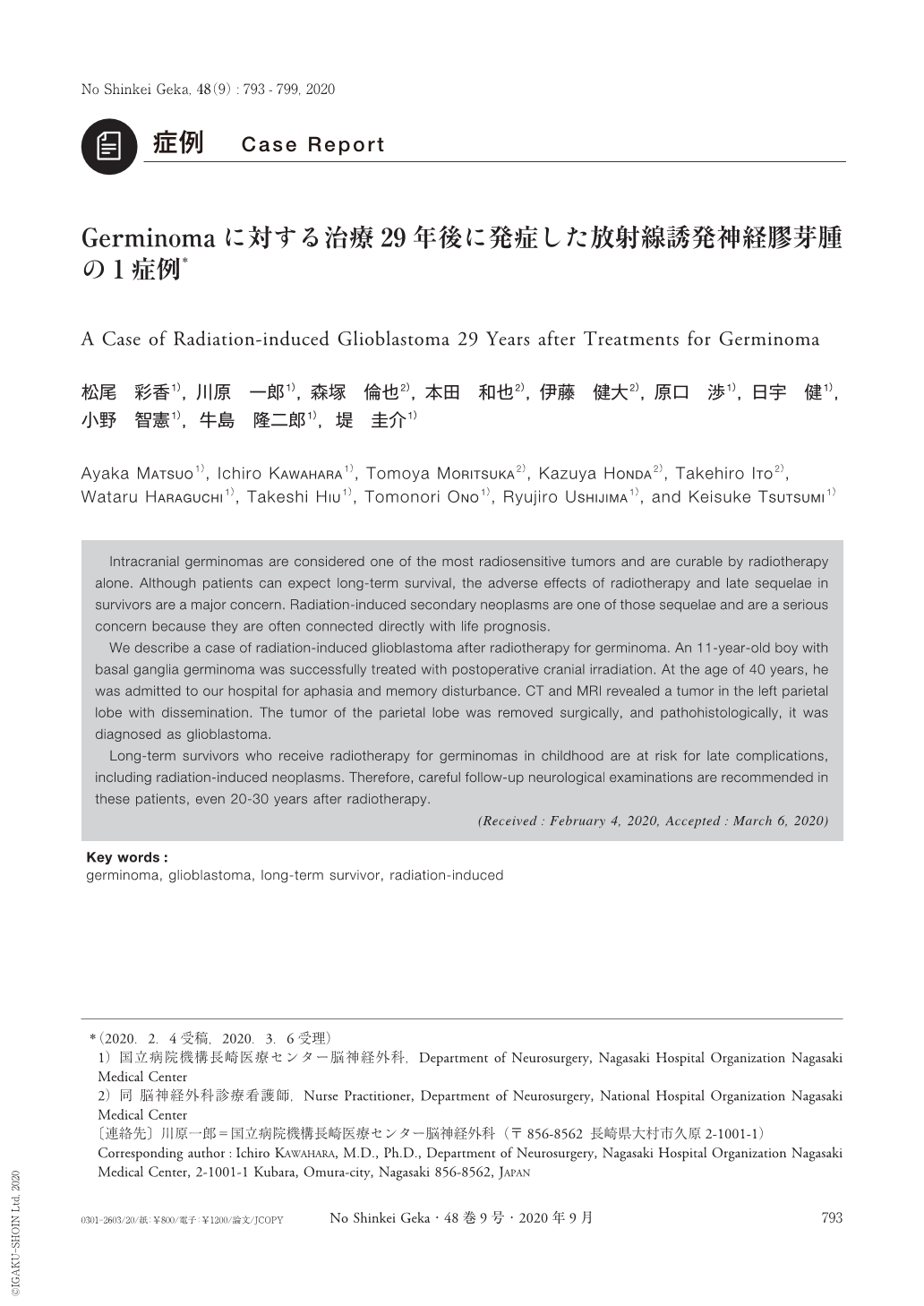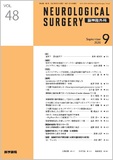Japanese
English
- 有料閲覧
- Abstract 文献概要
- 1ページ目 Look Inside
- 参考文献 Reference
Ⅰ.はじめに
Germinomaは放射線感受性が高い腫瘍の1つであり,以前は放射線治療単独で治癒が期待できるものと考えられ治療がなされていた経緯がある4-6,8,17).しかしながら,長期生存が期待できる反面,放射線による副作用や精神発達遅滞(知能や認知機能の低下),間脳下垂体機能障害,放射線誘発二次的な脳腫瘍,脳主幹動脈閉塞などの晩発性放射線障害がしばしば問題となり,とりわけ放射線誘発性の悪性脳腫瘍の出現は,生命予後にも直結するため極めて深刻である1,11-13,16).
今回われわれは,治療29年後に発症した放射線誘発性のglioblastomaの症例を経験したので,文献的考察を加え報告する.
Intracranial germinomas are considered one of the most radiosensitive tumors and are curable by radiotherapy alone. Although patients can expect long-term survival, the adverse effects of radiotherapy and late sequelae in survivors are a major concern. Radiation-induced secondary neoplasms are one of those sequelae and are a serious concern because they are often connected directly with life prognosis.
We describe a case of radiation-induced glioblastoma after radiotherapy for germinoma. An 11-year-old boy with basal ganglia germinoma was successfully treated with postoperative cranial irradiation. At the age of 40 years, he was admitted to our hospital for aphasia and memory disturbance. CT and MRI revealed a tumor in the left parietal lobe with dissemination. The tumor of the parietal lobe was removed surgically, and pathohistologically, it was diagnosed as glioblastoma.
Long-term survivors who receive radiotherapy for germinomas in childhood are at risk for late complications, including radiation-induced neoplasms. Therefore, careful follow-up neurological examinations are recommended in these patients, even 20-30 years after radiotherapy.

Copyright © 2020, Igaku-Shoin Ltd. All rights reserved.


